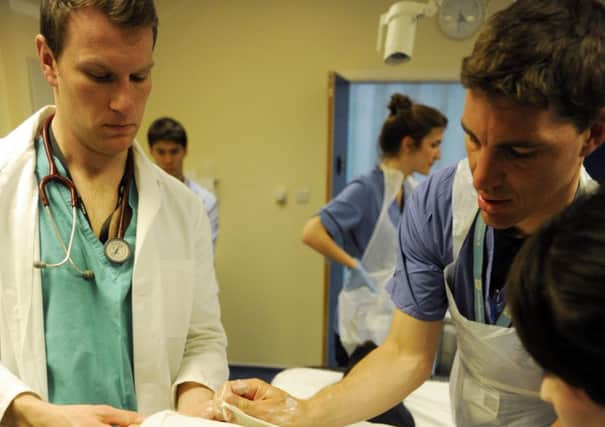GPs fill in for junior doctors for heart patients


NHS Greater Glasgow and Clyde said patients with stable heart conditions were being cared for locally in GP practices, while new patients and those with more serious problems would continue to be seen in hospital.
The Scotland Patients Association criticised the move and warned patients could be at risk.
Advertisement
Hide AdAdvertisement
Hide AdNHS Greater Glasgow and Clyde said that hospital-based cardiology clinics were provided for newly diagnosed cardiology patients and those with acute conditions. The board said that patients who had been assessed by a cardiology consultant could be “appropriately” discharged from the hospital service and into the care of their GP.
A spokeswoman said: “This is the same model that is in place for other long-term conditions such as diabetes. These arrangements will not affect new cardiology patients or those with more acute illness attending who will continue to get the specialist hospital-based cardiology input that their condition requires.
“This model comes as the number of junior doctors in training being made available to us is reducing, which means that we are able to see fewer patients in a hospital setting.”
European rules limiting the number of hours junior doctors can work to 48 per week have proved a challenge to boards across Scotland since they were introduced in 2009.
Many have had to look again at how shifts are organised to make sure they comply with the regulations, though there have been complaints that junior doctors still work long hours and the changes also reduce the training they receive.
Commenting on the situation in Glasgow, Margaret Watt, chair of the Scotland Patients Association, questioned whether GPs would have all the specialist knowledge and equipment needed to care for heart patients and spot any difficulties.
“You can see how dangerous it could be,” she said. “It is a really concerning move. GPs are busy as it is and it is only going to put more pressure on to them.”
Dr Brian Keighley, chairman of the British Medical Association in Scotland said: “The BMA is supportive in principle of the shift of resourced work towards care within a primary care setting.
Advertisement
Hide AdAdvertisement
Hide Ad“However, we would want to be assured that primary and secondary care doctors have been involved in the decision to make this change on the basis of it providing better-quality care and experience for people and their families – not a change driven by a shortage in numbers of junior doctors.”
Health Secretary Alex Neil has been under pressure to launch a review of NHS services amid concerns about growing dem-ands due to the ageing population. But in a Holyrood debate this week he dismissed calls for one, despite Labour claims that he was ignoring concerns over the state of the NHS.